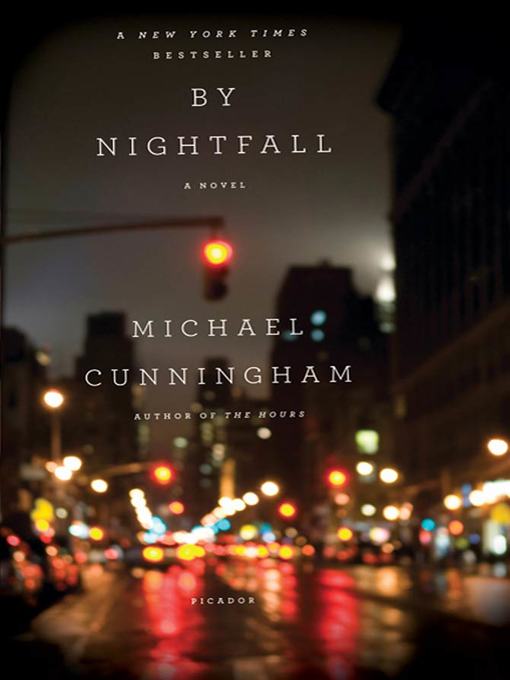
By Nightfall
A Novel
کتاب های مرتبط
- اطلاعات
- نقد و بررسی
- دیدگاه کاربران
نقد و بررسی

July 19, 2010
Contemplating an affair that never was, SoHo art dealer Peter Harris laments that he "could see it all too clearly." The same holds true for Cunningham's emotionally static and drearily conventional latest (after Specimen Days). Peter and his wife, Rebecca—who edits a mid-level art magazine—have settled into a comfortable life in Manhattan's art world, but their staid existence is disrupted by the arrival of Rebecca's much younger brother, Ethan—known as Mizzy, short for "The Mistake." Family golden child Mizzy is a recovering drug addict whose current whim has landed him in New York where he wants to pursue a career in "the arts." Watching Mizzy—whose resemblance to a younger Rebecca unnerves Peter—coast through life without responsibilities makes Peter question his own choices and wonder if it's more than Mizzy's freedom that he covets. Cunningham's sentences are, individually, something to behold, but they're unfortunately pressed into the service of a dud story about a well-off New Yorker's existential crisis.

August 1, 2010
A surfeit of literary and cultural references can't disguise a lightweight soap opera.
Literary subject matter is familiar territory for Cunningham (whose 1998 novel, The Hours, won a Pulitzer), but this novel's incessant evocations of James, Eliot, Joyce, Mann, Fitzgerald, Melville (and Carver and Barthelme and others) makes the narrative feel slight by comparison. Peter is a successful Manhattan art dealer; Rebecca, his wife of 21 years, edits a literary journal that is threatening to fold. "In a long marriage, you learn to identify a multitude of different atmospheres and weathers," thinks Peter early on, though it may well be that they neither know each other as well nor are as satisfied with their marriage as both initially seem to believe. Complication arrives in the form of Rebecca's much younger brother—the possibly brilliant, impossibly beautiful Ethan (generally known as "Mizzy," his unplanned birth was a mistake). He's a recovering drug addict, or perhaps not so recovering, and he has come to stay with them with the vague idea of doing "Something in the Arts." Ponders Peter of their guest, "It's hardly beyond understanding, neither the straight A's that led to Yale nor the drugs that led elsewhere." Peter and Rebecca have a daughter near Mizzy's age, who feels inexplicable (to Peter) bitterness toward her father. Peter also had a homosexual older brother, long dead, whose memory continues to haunt him. Mizzy might serve as a stand-in for Peter's brother, for his daughter, even for Peter's wife (whom he resembles in her younger, prettier days). He might also arouse incestuous feelings in Rebecca. Possibilities resolve themselves amid aesthetic pronouncements on how "a real work of art can be owned but should not be subject to capture" and that it is "something that will tell the world (poor forgetful world) that evanescence is not all."
"Does America get the art it deserves?" wonders Peter. Or the novel?
(COPYRIGHT (2010) KIRKUS REVIEWS/NIELSEN BUSINESS MEDIA, INC. ALL RIGHTS RESERVED.)

Starred review from August 1, 2010
"What do you do when you're no longer the hero of your own story?" That jolt, that upending realization that your life is just a stream of small dreams and small mistakes, is a defining theme in Cunningham's coruscatingly excellent fiction (remember The Hours?), expressed here in a way that makes you ache. Peter has had some success as a gallery owner in New York; his wife, Rebecca, is accomplished and seemingly confident if not the sparkler she once was. She's also from a not quite pleasantly nutty family, with one much younger brother, Mizzy (short for the Mistake; he wasn't planned), who's a brilliant, beautiful screwup now heading toward Peter and Rebecca. Rebecca's committed to saving Mizzy, so in he sweeps--"heartless, cynical, despairing youth"--and shows Peter how ordinary his life is: he's an indifferent parent, he sells art but hasn't achieved beauty or grandeur, he's been "banging on a tub to make a bear dance when we would move the stars to pity"--one of a hundred breath-catching, thought-shaking lines gilding the perfect narrative. VERDICT Mizzy nearly drives Peter and Rebecca to rash acts of their own, but in the end he's no answer, and they find that small might be enough. Extraordinary. [See Prepub Alert, LJ 5/15/10.]--Barbara Hoffert, Library Journal
Copyright 2010 Library Journal, LLC Used with permission.

Starred review from July 1, 2010
Peter Harris, a dispirited Soho gallery owner in his midforties, arrives home to find his wife in the shower and marvels at how lithe she looks through the steam, then realizes that hes admiring her much younger brother. Called the Mistake, or Mizzy, hes a lost soul, a junkie and moocher as sexy as he is manipulative. Mizzy appears just as Peter, brooding, romantic, and self-deprecating, is grappling with his failings as a father and an art dealer. Ceaselessly observant, Peter senses, or hopes for, some terrible, blinding beauty that will topple his carefully calibrated life, and why shouldnt it be his alluring, feckless brother-in-law? Even if this mad infatuation stems from Peters deep grief for his brilliant and fearless gay brother, who died of AIDS. In his most concentrated novel, a bittersweet paean to human creativity and its particularly showy flourishing in hothouse Manhattan, virtuoso and Pulitzer winner Cunningham entwines eroticism with aesthetics to orchestrate a resonant crisis of the soul, drawing inspiration from Henry James and Thomas Mann as well as meditative painter Agnes Martin and provocateur artist Damien Hirst. The result is an exquisite, slyly witty, warmly philosophical, and urbanely eviscerating tale of the mysteries of beauty and desire, art and delusion, age and love.(Reprinted with permission of Booklist, copyright 2010, American Library Association.)

























دیدگاه کاربران